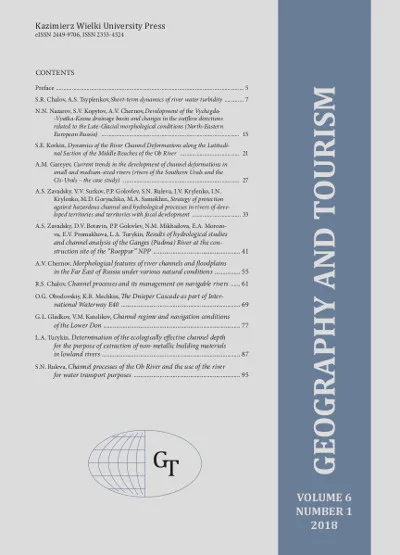Results of hydrological studies and channel analysis of the Ganges (Padma) River at the construction site of the “Rooppur” NPP
Keywords:
Nuclear Power Plant “Ruppur”, Ganges (Padma) River, channel processes, bottom and suspended sediment, anthropogenic impact, channel deformationsAbstract
This work presents the results of research on channel processes in the Padma River (Republic of Bangladesh) at the construction site of the “Ruppur” Nuclear Power Plant (NPP). The fluvial characteristics of the Padma River were presented, including: the water outflow regime, characteristics of anthropogenic impact on the river outflow and assessment of the present state of the channel and floodplain. The research was conducted based on field expeditions, during which data on morphology, dynamics, hydrological and hydraulic conditions for the formation of the floodplain-channel complex were collected. Moreover, the water discharges and suspended sediments, as well as the longitudinal profiles of the water level and the channel morphology were measured. The presented research has shown that comprehensive and planned regulation of selected sections of rivers could lead to the channel stabilization and support the rational use of water resources for different purposes, e.g. power plants, municipal purposes, etc. Moreover, detailed research on channel deformation in selected areas indicated the major role of natural factors (geological structure, the type of sediments delivered to the river, vegetation cover, etc.) in the past and present fluvial processes.

